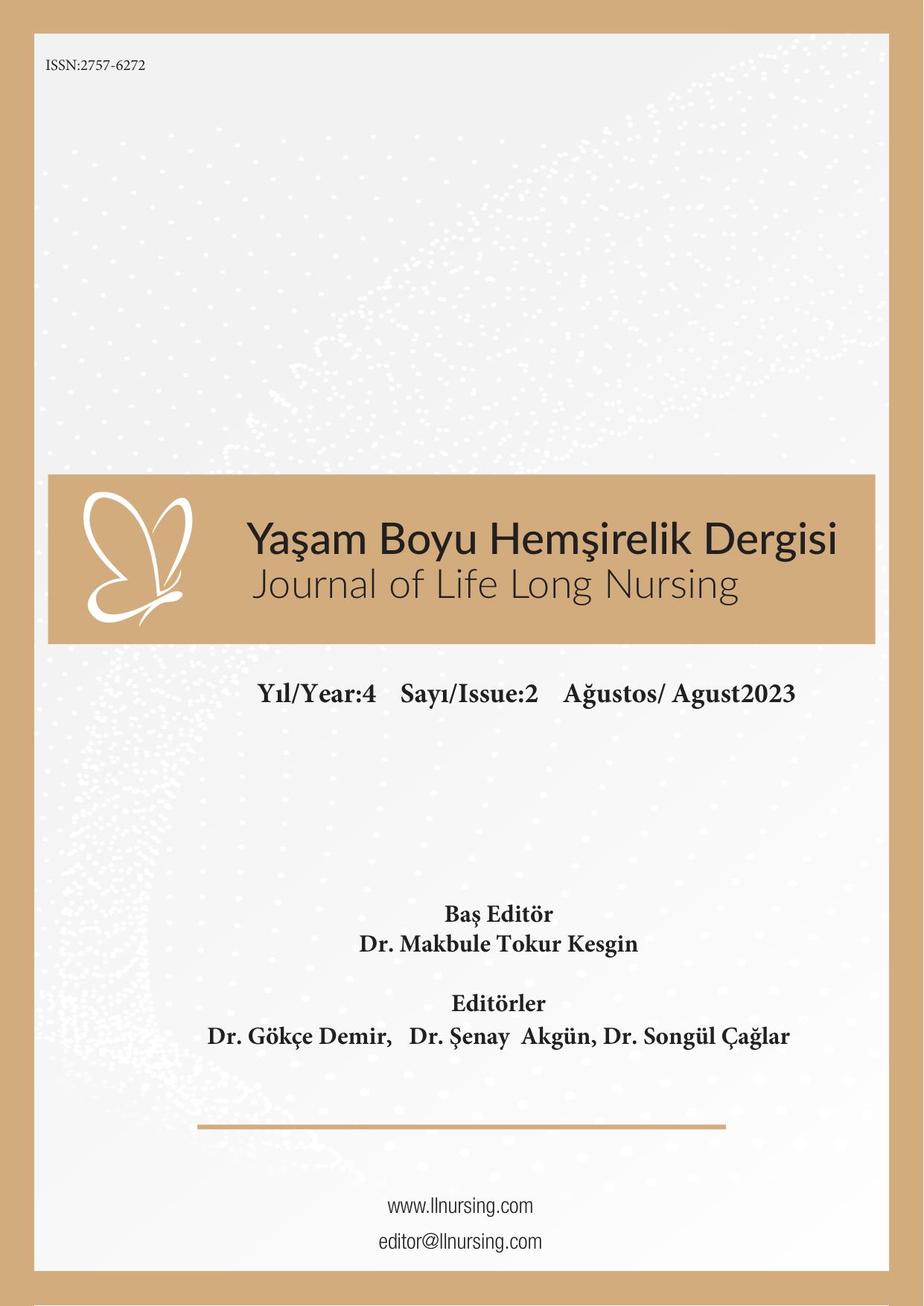Author :
Abstract
Amaç: COVID-19 servis ve yoğun bakımda çalışan hemşirelerin iş-aile yaşam çatışmasının belirlenmesi amacıyla yapılmıştır.
Yöntem: Araştırma Şubat-Mayıs 2021 tarihleri arasında COVID-19 servis ve yoğun bakım ünitelerinde çalışan hemşirelerle yürütülmüştür (n:361). Veri toplama aracı olarak sosyodemografik özellikler veri formu ve İş-Aile Yaşam Çatışması Ölçeği kullanılmıştır. Verilerin analizinde Pearson Korelasyon, T-test ve One-way Anova testleri kullanılmıştır.
Bulgular: Araştırmada, hemşirelerin %77,8’i kadın ve %65,9’u bekar, %51’inin 18-25 yaş arasında, %59,3’ün lisans mezunu, %36’sının meslekte çalışma süresinin 1-3 yıl olduğu bulunmuştur. COVID-19 servislerinde çalışan hemşirelerin İş-Aile Yaşam Çatışması Ölçeğinden aldığı toplam puan 23.49±4.35; COVID-19 yoğun bakım da çalışan hemşirelerin İş-Aile Yaşam Çatışması Ölçeğinden aldığı toplam puanı 26.74±4.19’dur. Hemşirelerin İş-Aile Yaşam Çatışması Ölçeğinden aldığı toplam puan çalıştıkları bölüme, cinsiyete, yaşa, eğitim durumuna, medeni duruma, meslekte çalışma süresine, çocuk sayısına, çocukların bakımı için ve ev işleri için destek almasına göre istatistiksel olarak anlamlı farklılık bulunmuştur (p<0.05).
Sonuç: COVID-19 yoğun bakım ünitelerinde çalışan hemşirelerin iş-aile yaşam çatışma düzeyi serviste çalışan hemşirelere göre yüksek bulunmuştur. Yoğun bakım hemşirelerinin aile içi süreçlerinin korunmasına ve sosyal destek mekanizmalarının arttırılmasına yönelik çalışmaların yapılması önerilmektedir.
Keywords
Abstract
Aim: This study was conducted to determine the work-family life conflict of nurses working in COVID-19 service and intensive care units. Method: The study was conducted with nurses working in COVID-19 service and intensive care units between February and May 2021 (n:361). Sociodemographic characteristics data form and Work-Family Life Conflict Scale were used as data collection tools. Pearson Correlation, T-test and One-way Anova tests were used in the analysis of the data.
Results: In the study, 77.8% of the nurses were women and 65.9% were single, 51% were between the ages of 18-25, 59.3% had a bachelor's degree, 36% had 1-3% of working time. year was found. The total score of the nurses working in the COVID-19 wards from the Work-Family Conflict Scale was 23.49±4.35; The total score of Work-Family Life Conflict of the nurses working in the COVID-19 intensive care unit is 26.74±4.19. A statistically significant difference was found according to the total score of the nurses from the Work-Family Conflict Scale, according to the department they work, gender, age, education level, marital status, length of work in the profession, number of children, support for child care and housework (p<0.05).
Conclusion: The work-family conflict level of the nurses working in the COVID-19 intensive care units was found to be higher than the nurses working in the service. It is recommended to carry out studies to protect the family processes of intensive care nurses and to increase social support mechanisms.
